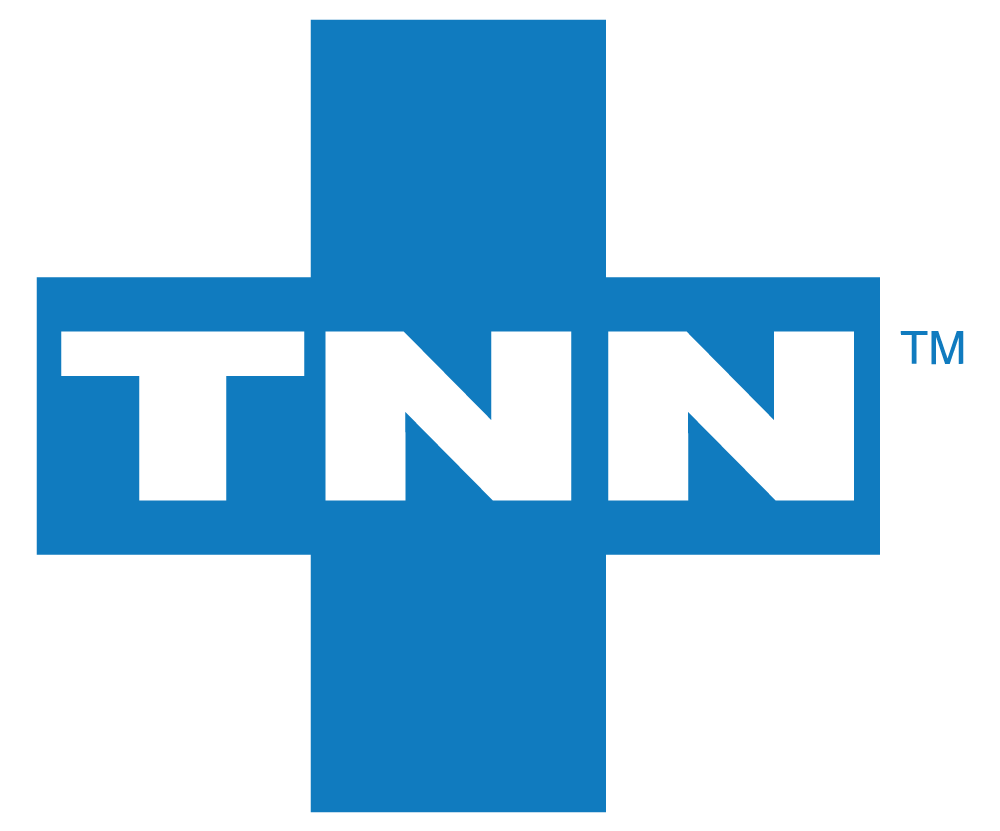
TNN Bulletin
As a person interested in becoming an Emergency Room Nurse (ERN), you are likely on a journey to find the best resources and information to help you achieve your goal. Look no further, as this article is the ultimate guide to becoming an ERN.
In this article, we will cover various topics such as education and training, as well as steps on how to become an emergency room nurse, the job duties and responsibilities of an ERN, the salary and job outlook in this field, as well as tips on how to excel as an ERN. These features of the article will provide you with comprehensive knowledge and understanding of what it takes to become an ERN.
To get the best value from this article, we recommend reading it thoroughly and taking notes of any key points that stand out to you. We encourage you to research any topics that interest you or require more information.
What is emergency room nursing?
Emergency Room Nursing, also known as Emergency Department (ED) nursing, is a specialized field of nursing that involves caring for patients who require immediate medical attention. ER Nurses work in fast-paced and high-pressure environments, providing care to patients with various medical emergencies such as traumas, heart attacks, and strokes.
The duties and responsibilities of an ER Nurse include triage, assessment, treatment, and ongoing monitoring of patients, administering medications, performing procedures, and collaborating with other healthcare professionals. The average salary of an ER Nurse is around $83,503 annually or $40 /hour in the United States.
If you are wondering about the main difference between Emergency Room Nursing and Operating Room Nursing, ER Nurses generally work in fast-paced and unpredictable settings, while OR Nurses work in more controlled environments, assisting surgeons during surgeries. ER Nurses must have a broad range of clinical skills and knowledge to manage a variety of medical emergencies, whereas OR Nurses specialize in surgical procedures and instrumentation
How to Become an Emergency Room Nurse
We will provide you with a comprehensive overview of what it takes to become an ERN, including the education and training required, job duties and responsibilities, and tips on how to excel in this field.
Understanding the Path
An emergency room nurse is a skilled individual who excels in making quick decisions, multitasking, and adapting to unpredictable situations which are typical of an emergency room environment. This role requires individuals who appreciate the fast-paced nature of the job and are not intimidated by the uncertainty of who might come through the door or the severity of their condition. The ideal candidate for this role enjoys helping patients and is not easily affected by emotional trauma in patients.
While working as an ER RN can be a rewarding career, some nurses may choose to advance their education and career by becoming a nurse practitioner (NP). NPs are advanced practice registered nurses (APRNs) who have completed additional education and training beyond an RN degree. NPs have the authority to diagnose and treat illnesses, prescribe medications, and order diagnostic tests. They also provide patient education, counseling, and preventive care.
The benefits of becoming an NP include higher salaries, increased autonomy, the ability to provide comprehensive and specialized care to patients, and most especially, job security. NPs can choose to specialize in various areas, including family practice, pediatrics, women’s health, and gerontology.
It’s important to note that while all NPs are APRNs, not all APRNs are NPs. Other types of APRNs include certified nurse-midwives, clinical nurse specialists, and certified registered nurse anesthetists. These roles also require additional education and training beyond an RN degree and have specific responsibilities and scopes of practice.
Working as an ER RN is a challenging and rewarding career, but there are opportunities to advance and specialize as an NP. NPs have greater autonomy and can provide a wide range of services to patients.
Educational Journey
1. Pursuing a Bachelor of Science in Nursing (BSN) degree
To pursue a Bachelor of Science in Nursing (BSN) degree, students must meet certain requirements and prerequisites, complete coursework, and participate in clinical rotations.
The admission requirements for BSN programs vary by school. Most programs require a high school diploma or equivalent, and some may require a minimum GPA. Schools may also require SAT or ACT scores, immunization records, background checks, and drug screenings.
Moreover, students must also complete prerequisite coursework before being admitted into a BSN program. Prerequisites typically include anatomy and physiology, microbiology, chemistry, and psychology. Students may also be required to complete general education courses such as English composition, math, and social sciences.
Once admitted into a BSN program, students must complete coursework and clinical rotations. BSN programs typically take four years to complete, and coursework covers topics such as pharmacology, pathophysiology, nursing ethics, and health assessment. Clinical rotations provide students with hands-on experience providing care to patients in a variety of settings, including hospitals, clinics, and community health centers.
During their clinical rotations, BSN students work under the supervision of licensed nurses and gain experience in patient care, medication administration, wound care, and patient assessment. Clinical rotations also provide students with an opportunity to work with interdisciplinary healthcare teams, including doctors, therapists, social workers, and pharmacists.
2. Obtaining licensure as a registered nurse (RN)
To obtain a nursing license, all registered nurses must pass the NCLEX-RN exam, which is a nationwide licensing exam. This exam evaluates the competencies necessary to perform nursing duties safely and effectively.
The NCLEX-RN is a computer-based exam that tests the knowledge and skills necessary to provide safe and effective patient care. The exam is computer-based and consists of a minimum of 75 questions and a maximum of 265 questions. The number of questions a test-taker receives is determined by the computer algorithm, which adapts to the individual test-takers ability level.
The exam covers four major categories: Safe and Effective Care Environment, Health Promotion and Maintenance, Psychosocial Integrity, and Physiological Integrity. Each category is further broken down into subcategories, such as Infection Control, Pharmacological and Parenteral Therapies, and Reduction of Risk Potential.
To be eligible to take the NCLEX-RN, candidates must have graduated from an accredited nursing program and have met all state requirements for licensure. Candidates must also register with their state’s board of nursing and pay the appropriate fees.
After completing the exam, candidates receive a Pass or Fail result. If a candidate fails, they may retake the exam after a waiting period determined by their state’s board of nursing. Most states require candidates to pass the NCLEX-RN within a certain number of attempts to maintain eligibility for licensure.
3. Gaining experience as an RN in the emergency room
Working as a registered nurse (RN) in the emergency room (ER) is an excellent key to gain valuable experience and develop essential skills and knowledge. In this article, we will explore how working in the ER can help RNs build professional connections and advance their careers.
ER nurses are responsible for triaging patients, performing assessments, administering medications, implementing treatments, and collaborating with other healthcare professionals to ensure optimal outcomes. Working in the ER allows RNs to gain hands-on experience providing care to patients with a variety of illnesses and injuries. ER RNs must be able to handle high-stress situations and think on their feet, which helps develop critical thinking and problem-solving skills.
Furthermore, working in the ER provides opportunities to build professional connections. ER RNs work closely with doctors, physician assistants, and other healthcare professionals. Building professional connections with these individuals can lead to career advancement opportunities, such as becoming a charge nurse or transitioning to a leadership role.
Working in the ER also provides opportunities to participate in continuing education, such as training programs or certifications. Developing specialized skills and knowledge can make RNs more marketable and increase their value to employers.
Transitioning to Advanced Practice
Transitioning to advanced practice as a registered nurse (RN) is an excellent way to advance your career and take on more responsibility and autonomy in patient care. Nurse practitioners (NPs) are licensed healthcare providers who assess, diagnose, and treat patients independently in a variety of settings. Let’s explore how to choose a nurse practitioner specialty and the reasons to specialize in emergency care.
Choosing a nurse practitioner specialty
When choosing a nurse practitioner specialty, it’s crucial to take into account your personal interests, strengths, and career goals. Nurse practitioners can choose from a range of specializations, including family practice, pediatrics, women’s health, psychiatry, and emergency care. To make an informed decision, it’s important to conduct thorough research into each specialty and evaluate your skills and interests to determine which one aligns best with your career aspirations.
Specializing in emergency care is an excellent option for NPs who enjoy fast-paced environments and the challenge of treating critically ill or injured patients. Emergency care NPs work in hospital emergency departments, urgent care centers, and other acute care settings. They are responsible for assessing and diagnosing patients, ordering and interpreting diagnostic tests, prescribing medications, and coordinating care with other healthcare professionals.
There are several reasons why NPs may choose to specialize in emergency care.
- Fast-paced environment
- Opportunity to work with critically ill patients
- Interdisciplinary collaboration
- Broaden knowledge and skills
- Make a significant impact
Pursuing a Master of Science in Nursing (MSN) degree or higher
It is imperative to pursue a Master of Science in Nursing (MSN) degree with a focused approach towards emergency nursing to excel in the fast-moving and high-pressure environment of an emergency department. This advanced degree will provide you with the knowledge and skills needed to work in a fast-paced emergency setting. Look for accredited programs that offer coursework and clinical practicum experiences specifically tailored to emergency nursing.
Moreover, it’s important to gain experience working in emergency settings. Seek out opportunities to work in emergency departments or urgent care centers to gain hands-on experience and develop the necessary skills to work in the ER.
Becoming an ERN requires dedication and hard work, but it can be a rewarding career path for those who thrive in high-pressure situations and enjoy helping others in critical moments.
Acquiring certification as a nurse practitioner
Obtaining certification as a nurse practitioner is a vital aspect of career development and expanding your horizons in the nursing profession. This requires successful completion of a graduate-level nursing program and passing a national certification exam.
For those interested in emergency nursing, there are national certification exams specifically for emergency nurse practitioners. The American Nurses Credentialing Center (ANCC) and the Emergency Nurses Association (ENA) both offer certification exams for this specialty.
In addition to passing the national certification exam, it’s important to meet state-specific requirements for nurse practitioners. This may include obtaining a state license, completing continuing education courses, and maintaining certification through ongoing professional development.
Obtaining certification as a nurse practitioner demonstrates a commitment to professional development and can open up new opportunities for career growth and advancement.
Thriving As the Emergency Room Nurse
In order to provide timely and quality care to patients, Emergency Roon Nurses must possess a unique set of skills that enable them to perform their tasks effectively.
Effective time management: Emergency room nurses must manage their time effectively in order to provide timely and quality care to patients. They may need to prioritize tasks such as triaging patients, administering medications, and communicating with healthcare providers to ensure that patients receive the best possible care.
Understanding the Priority (Prioritization): Prioritization is critical in emergency room settings, as nurses must make quick decisions about which patients require immediate attention. Nurses must be able to assess the condition of each patient and determine the level of urgency required for their care.
Handling emergencies and critical situations: Emergency room nurses are often the first healthcare professionals that patients encounter in emergency situations. They must be prepared to handle critical situations, remain calm, and provide life-saving interventions as needed before patients can be transferred to other departments or specialists.
Communication and teamwork skills: Emergency room nurses work closely with other healthcare providers, including physicians and specialists. Effective communication and teamwork are essential to ensure that patients receive the best possible care and have positive outcomes.
Coordinating patient care: Emergency room nurses are responsible for coordinating patient care, including administering medications, monitoring vital signs, and providing continuous assessments to ensure that patients receive the appropriate treatment. They may also coordinate follow-up care with other healthcare providers.
Continual learning and professional development: The healthcare field is constantly evolving, and emergency room nurses must stay up-to-date on the latest treatments, technologies, and procedures to provide the best possible care to their patients. Continual learning and professional development are essential for keeping up with these changes.
Staying updated: In addition to continual learning and professional development, emergency room nurses must also stay updated on hospital policies and procedures, as well as any changes to local or national regulations that may affect patient care. Staying updated ensures that they can provide the highest quality of care and ensure patient safety.
Manage Emergency Room Nursing Jobs & Start Career
Managing an emergency room nursing job and starting a career in this field can be both exciting and challenging. To get started, the first step is to find ERN job sources that meet your needs. There are several job websites, including LinkedIn, Indeed, and Glassdoor, that cater to nursing professionals. These sites provide job listings from healthcare organizations across the country and help you tailor your search based on location, experience, and other relevant factors.
Once you have identified potential ERN job sources, it’s time to learn how to apply and the requirements for each position. Most job postings will include a list of qualifications and experience that candidates should possess. It is important to review these requirements carefully and ensure that you meet each one before applying.
Many hospitals and healthcare organizations require candidates to pass a nursing exam and participate in an interview process as part of their selection process. To prepare for these exams and interviews, it is important to research the organization, practice common interview questions, and brush up on clinical skills.
One of the reasons people may fail to secure an ERN job is due to a lack of experience or specific skills required by the job. It is important to gain experience and develop skills through volunteering, internships, or continuing education courses.
We at Total Nursing Network (TNN) specialize in providing nursing professionals with opportunities in various healthcare settings. We offer competitive pay, flexible scheduling, and training opportunities to help nurses gain the necessary experience and skills to advance their careers.
Career Advancement and Opportunities
Numerous career advancement opportunities can propel your professional growth, even for emergency room nurses. One of the most obvious paths is advancing to higher positions within the healthcare facility, such as becoming a charge nurse or a nurse manager.
There are also teaching and research opportunities available for emergency room nurses. You can become a preceptor for nursing students or participate in research studies to contribute to the development of the field. These opportunities not only increase your knowledge and skills but also give you a chance to mentor and inspire future nurses.
Another way to advance your career as an emergency room nurse is by obtaining additional certifications. Specializing in areas such as trauma care, critical care, or pediatric emergency care can help you provide more specialized care to patients and make you stand out in a competitive job market.
Establishing meaningful connections and expanding your professional network is a relevant component for advancing your career in any field. Attending conferences, joining professional associations, and participating in online forums can help you build connections with other professionals in the industry. These connections can lead to new job opportunities, collaborations, and even friendships.
Finally, joining relevant associations and groups provides numerous benefits, such as access to educational resources, networking opportunities, and professional development opportunities.
Frequently Asked Questions
1. How long does it take to become an emergency room nurse practitioner?
It typically takes about 6-8 years to become an emergency room nurse practitioner, including completing a Bachelor of Science in Nursing (BSN) program, obtaining a registered nurse (RN) license, gaining experience as an RN, and then completing a Master of Science in Nursing (MSN) program with a focus on emergency care.
2. What are the essential skills needed to succeed in this role?
There are several essential skills that are needed to succeed as an emergency room nurse practitioner, including strong critical thinking and decision-making abilities, excellent communication and interpersonal skills, the ability to work well under pressure and in high-stress situations, a thorough understanding of emergency care protocols and procedures, and the ability to work collaboratively with other healthcare professionals. Additionally, having strong organizational and time management skills, as well as a commitment to ongoing learning and professional development, can also be beneficial in this role.
3. How much do emergency room nurse practitioners earn?
Emergency nurse practitioners can earn a competitive salary that varies depending on several factors such as location, experience, and education level. The average salary of an ER Nurse is around $83,503 annually or $40 /hour in the United States.
4. What is the difference between a nurse practitioner and a physician assistant in the ER?
While there can be some overlap in the roles and responsibilities of nurse practitioners (NPs) and physician assistants (PAs) in the emergency room (ER), there are also some key differences between the two positions.
Nurse practitioners typically begin their careers as registered nurses (RNs) and then go on to complete additional education and training, often earning a Master of Science in Nursing (MSN) or a Doctor of Nursing Practice (DNP) degree. They are licensed to diagnose and treat patients, prescribe medications, and order diagnostic tests. NPs tend to approach patient care from a nursing perspective, focusing on holistic care and patient education.
Physician assistants, on the other hand, come from varied healthcare backgrounds and go on to complete a master’s degree in physician assistant studies. PAs work under the supervision of a licensed physician and can perform many of the same tasks as NPs, such as performing physical exams, diagnosing and treating illnesses and injuries, and prescribing medications. However, they tend to approach patient care from a more medical perspective, with an emphasis on disease management.
Ultimately, both nurse practitioners and physician assistants can play important roles in providing high-quality care in the emergency room, and the specific responsibilities and duties of each position may vary depending on the needs of the healthcare facility and the individual patient.
5. What are the challenges faced by emergency room nurse practitioners?
Some challenges faced by emergency room nurse practitioners include high patient volume, fast-paced and unpredictable work environment, complex and critical medical cases, long work hours, and emotional stress.
6. What is the scope of practice for emergency room nurse practitioners?
The scope of practice for emergency room nurse practitioners involves assessing and treating patients with acute medical conditions, ordering and interpreting diagnostic tests, prescribing medications, performing procedures such as suturing and intubation, and collaborating with other healthcare professionals to provide efficient and comprehensive care to patients in the emergency department. They also provide education and counseling to patients and families regarding the management of their medical conditions.
Bottom Line
To summarize, this article provides a comprehensive guide on how to become an emergency room nurse (ERN), covering all the essential details required to pursue this career. We tackled the educational journey required, essential skills and knowledge, job sources, interview tips, and career advancement opportunities.
Total Nurses Network is a leading provider of home healthcare services, including skilled nursing, therapy, and personal care. We are a team of dedicated professionals is committed to providing personalized care that meets the individual needs of each and every patient.
Upon choosing us, you can be assured that your loved one will receive the highest quality care in the comfort of their own home. This can greatly improve their quality of life, while also providing peace of mind for family members who may not be able to provide the level of care needed on their own.
Don’t let healthcare concerns hold you back from living life to the fullest. Contact us today to see how we can help you or a loved one get the care they deserve.








